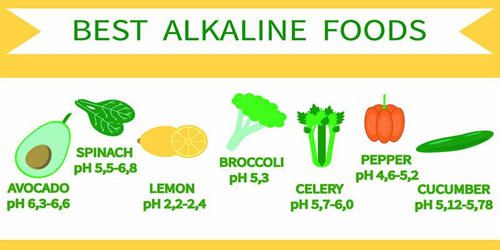Vitamin K is known as the “blood-clotting vitamin” for its important role in healing wounds. The “K” is derived from the German word koagulation. Vitamin K also plays an important role in bone health. It refers to a group of fat-soluble vitamins that play a role in blood clotting, bone metabolism, and regulating blood calcium levels.
The body needs vitamin K to produce prothrombin, a protein, and a clotting factor that is important in blood clotting and bone metabolism. People who use blood-thinning medications, such as warfarin, or Coumadin, should not start consuming additional vitamin K without first asking a doctor.
Deficiency is rare, but, in severe cases, it can increase clotting time, leading to hemorrhage and excessive bleeding.
Vitamin K is found in:
- green leafy vegetables – such as broccoli and spinach
- vegetable oils
- cereal grains
- Small amounts can also be found in meat and dairy foods.
Adults need approximately 1 microgram a day of vitamin K for each kilogram of their body weight.
For example, someone who weighs 65kg would need 65 micrograms a day of vitamin K, while a person who weighs 75kg would need 75 micrograms a day.
A microgram is 1,000 times smaller than a milligram (mg). The word microgram is sometimes written with the Greek symbol μ followed by the letter g (μg).
Vitamin K1, or phylloquinone, comes from plants. It is the main type of dietary vitamin K. A lesser source is vitamin K2, or menaquinone, which occurs in some animal-based and fermented foods.
Benefits of Vitamin K –
Vitamin K is an important factor in bone health and wound healing. Vitamin K is a fat-soluble vitamin that makes proteins for healthy bones and normal blood clotting. According to the Harvard School of Public Health, vitamin K helps produce four of the 13 proteins needed for blood clotting.
K also teams up with other vitamins. “Vitamin K works with vitamin D to ensure that calcium finds its way to the bones to help them develop properly,” Dr. Sherry Ross, women’s health expert at Providence Saint John’s Health Center in Santa Monica, California.
Vitamin K benefits the body in various ways.
- Bone health: There appears to be a correlation between low intake of vitamin K and osteoporosis. Several studies have suggested that vitamin K supports the maintenance of strong bones, improves bone density, and decreases the risk of fractures. However, research has not confirmed this.
- Cognitive health: Increased blood levels of vitamin K have been linked with improved episodic memory in older adults. In one study, healthy individuals over the age of 70 years with the highest blood levels of vitamin K1 had the highest verbal episodic memory performance.
- Heart health: Vitamin K may help keep blood pressure lower by preventing mineralization, where minerals build up in the arteries. This enables the heart to pump blood freely through the body. Mineralization naturally occurs with age, and it is a major risk factor for heart disease. Adequate intake of vitamin K has also been shown to lower the risk of stroke.
There’s not enough evidence to know what the effects might be of taking high doses of vitamin K supplements each day. Without vitamin K, the body cannot produce prothrombin, a clotting factor that is necessary for blood clotting and bone metabolism. Newborns normally receive a vitamin K injection to protect them from bleeding in the skull, which could be fatal.
The recommended adequate intake for vitamin K depends on age and gender. Women aged 19 years and over should consume 90 micrograms (mcg) a day, and men should have 120 mcg.
Research by the University of Wisconsin-Green Bay found that vitamin K has a positive effect on bone mineral density and decreases fracture risk. A report by the Brigham and Women’s Hospital and Harvard Medical School found that women who get adequate amounts of vitamin K in their diet are less likely to break a hip. The U.S. Department of Agriculture Human Nutrition Research Center on Aging also found that low levels of vitamin K can lead to low bone mass density and an increase in hip fractures in women.
Health benefits of vitamin K that have been proposed but not scientifically proven include protection against heart disease, prostate cancer, and Alzheimer’s disease, said, Dr. Sherry Ross.
Information Sources:
















